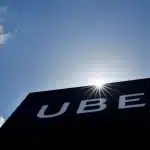LONDON — Meta said it is blocking Russia’s state media organizations from its social media platforms, claiming that the outlets employed misleading strategies to spread Moscow’s misinformation. The Kremlin condemned the news on Tuesday.
The business, which owns Facebook, WhatsApp, and Instagram, announced late Monday that it will implement the restriction over the following few days as part of its attempts to counter Russia’s covert influence operations.
“After careful consideration, we expanded our ongoing enforcement against Russian state media outlets: Rossiya Segodnya, RT and other related entities are now banned from our apps globally for foreign interference activity,” Meta stated in a written statement.
Facebook Owner Meta Bans Russia State Media Outlets Over ‘Foreign Interference’
Dmitry Peskov, Kremlin spokesman, reacted, stating that “such selective actions against Russian media are unacceptable,” and that “Meta with these actions are discrediting themselves.”
“We have a really negative view about this. And this, of course, hinders our chances of normalising relations with Meta,” Peskov told reporters during his regular conference call.
RT, formerly known as Russia Today, and Russia Segodnya both condemned the move.
“It’s cute how there’s a competition in the West — who can try to spank RT the hardest, in order to make themselves look better,” said RT in a statement.
Rossiya Segodnya, the parent corporation of state news agency RIA Novosti and news brands such as Sputnik, stated that Meta’s decision “was not unexpected for us.”
“Meta is a highly politicised organisation. We will continue to work in the countries where we are now present, and this decision will have no impact on our activity,” Rossiya Segodnya stated in a statement.
Meta’s moves came just days after the US announced new sanctions against RT, citing the Kremlin news outlet as being a significant component of Russia’s war machine and efforts to destabilize its democratic enemies.
Last week, US officials said that RT was collaborating with the Russian military and organizing fundraising drives to buy sniper rifles, body armor, and other equipment for soldiers fighting in Ukraine. They further said that RT websites pretended to be credible news sites but were used to promote disinformation and propaganda throughout Europe, Africa, South America, and elsewhere.
Earlier this month, the Biden administration seized Kremlin-run websites and charged two RT workers with sending millions of dollars in covert funding to a Tennessee-based content development company to generate English-language social media videos promoting Kremlin policies.
Moscow has denied the allegations.
Facebook Owner Meta Bans Russia State Media Outlets Over ‘Foreign Interference’
Meta had already taken steps to curb Moscow’s online presence. Since 2020, it has labeled postings and content from state-run media. Two years later, it prohibited Russian state media from running ads and lowering their content in people’s feeds, and the company, along with other social media sites such as YouTube and TikTok, barred European Union users from accessing RT and Sputnik channels after they were sanctioned by Brussels. In 2022, Meta also shut down a vast Russia-based disinformation network that propagated Kremlin talking points about the invasion of Ukraine.
Moscow responded by branding Meta as an extremist group in March 2022, shortly after sending soldiers into Ukraine and restricting Facebook and Instagram. Both sites, as well as Elon Musk’s X, formerly known as Twitter, which is also restricted, were popular among Russians before to the invasion and the accompanying crackdown on independent media and other kinds of critical discourse. The social media services are now only available over virtual private networks.
SOURCE | AP









